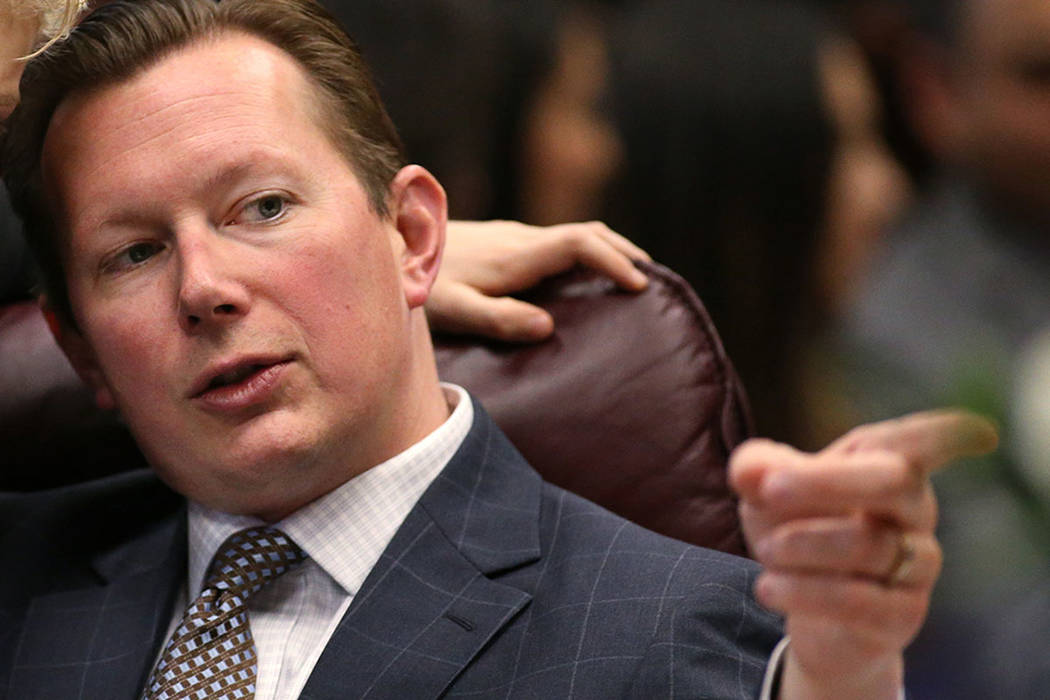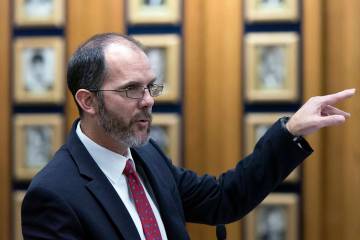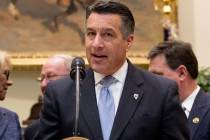College affordability discussed in Nevada Senate committee
The topic of college affordability reached the Senate Education Committee in the form of two bills.
State Sen. Ben Kieckhefer, R-Reno, referred to his bill, which would make two changes to the Silver State Opportunity Grant, as a “cleanup.”
“It’s an offshoot of some lessons learned to make it more effective for students,” he said.
Senate Bill 310 would waive the program’s 15-credit requirement for any student who needs fewer than 15 credits in their final semester to graduate.
“We shouldn’t require them to take more classes than is necessary,” Kieckhefer said.
The other change would allow a student to take a class at a university if the course is vital to the degree and is either not offered, or the enrollment is full at a community college.
“Even terrific programs have trouble spots,” said Karin Hilgersom, president of Truckee Meadows Community College. “It’s great we’re working through those.”
Hilgersom, however, also voiced her support for expanding the program. The governor’s proposed budget includes twice the amount of funding for the need-based grant in the next biennium.
“At Truckee Meadows Community College, we had more students who could have benefited from the program, but the money ran out,” she said.
Also Tuesday, the committee heard strong support for a bill that would create the state’s first Promise program.
Supporters included the College of Southern Nevada, several students, the Clark County School District, the Latin Chamber of Commerce, the United Way of Southern Nevada and the cities of Las Vegas and Henderson.
Senate Bill 391, introduced by state Senate President Pro Tempore Mo Denis, D-Las Vegas, is patterned after Tennessee’s Promise program, which provides free tuition to a community college. It is a last-dollar scholarship, covering what Pell, Millennium and Silver State Opportunity grants do not.
“I stand behind this bill,” said Peter Guzman, president of the Latin Chamber of Commerce. “I think it’s a courageous bill.”
Guzman said that, for the state to go forward, it needs a trained workforce.
“It’s ideas like this that will help us to be able to move into the future,” he said.
Nancy Brune, executive director of the Guinn Center, said preliminary and “very aggressive” estimates show the program would cost between $1.2 million and $1.5 million across all four community colleges.
The program also would establish a mentoring program.
According to K.C. Brekken, executive director of public affairs for CSN, Tennessee didn’t see positive outcomes until its program added mentoring.
“After they added a mentor component, they started to see the needle move,” she said.
Contact Natalie Bruzda at nbruzda@reviewjournal.com or 702-477-3897. Follow @NatalieBruzda on Twitter.
Eligibility requirements for Nevada Promise:
— A Nevada resident under the age of 20 who has obtained a high school diploma or GED
— Must complete the Free Application for Federal Student Aid
— Must attend a free training meeting for the program
— Must complete eight hours of community service
— Must enroll in at least 12 credits each semester




























